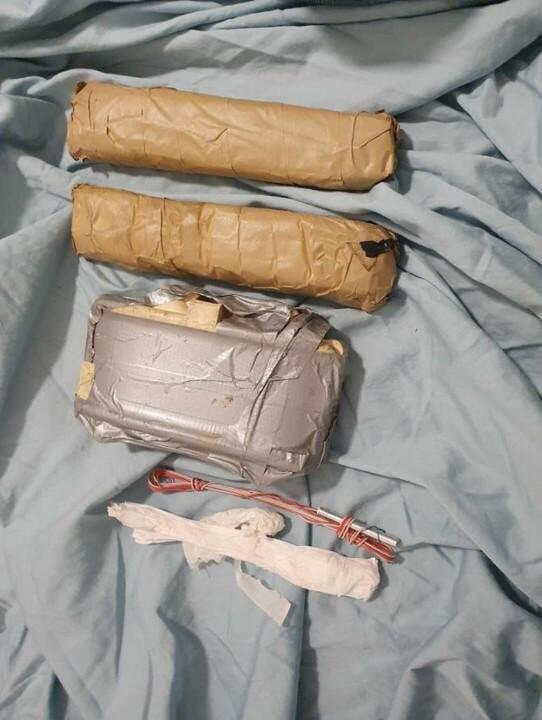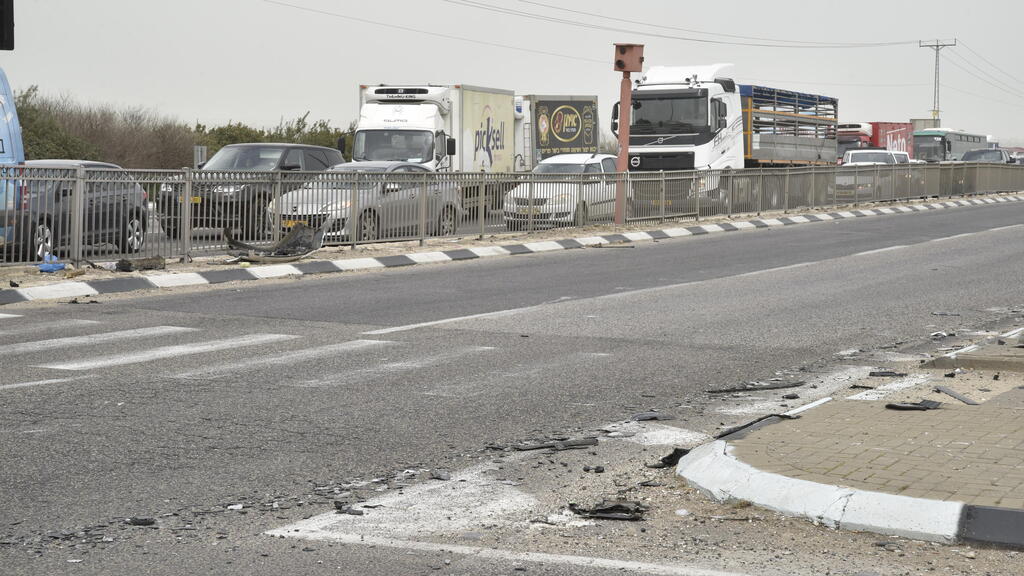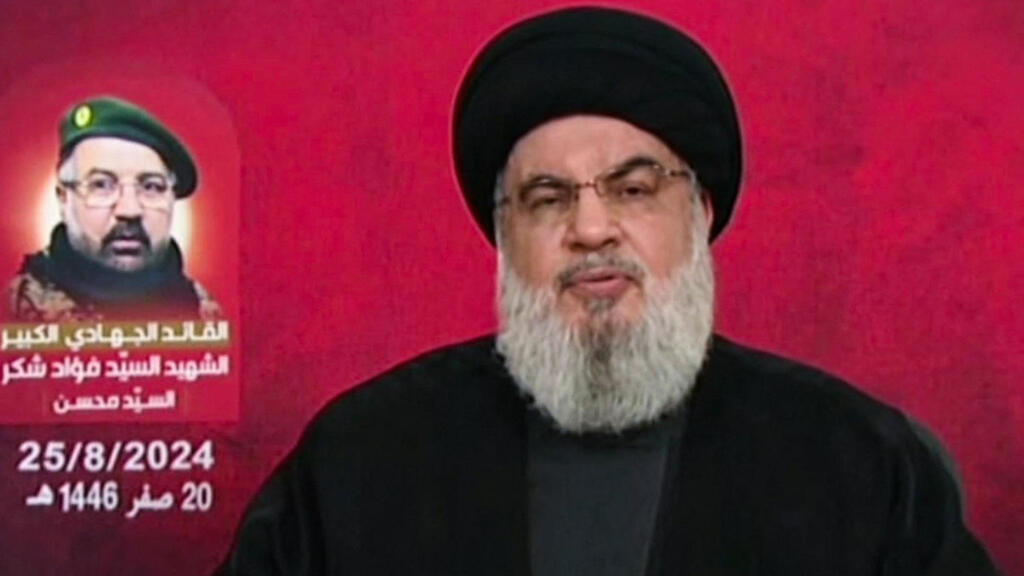Getting your Trinity Audio player ready...
The detonation of pagers in Lebanon on Tuesday demonstrated to Hezbollah just how penetrable the organization is — not only in terms of intelligence but also digitally. The connection between the two represents a weapon in itself which Hezbollah and its Iranian patrons must be wary of.
Currently, there is no change in Israel's strategic outlook. The action attributed to Jerusalem undoubtedly increases deterrence against Hezbollah and its Iranian patrons and serves as a moral blow, but it's not a game-changer — it won’t return the northern residents to their homes safely.
Thousands of pagers belonging to Hezbollah operatives explode across Lebanon
If Israel is indeed behind these explosions, including those in Syria, it sends a serious warning to Hezbollah not to attempt attacks within Israeli territory, as it has done at least three times recently using local Palestinian infrastructure.
Experts in electronics suggest that the beepers were primarily intended to coordinate and time the launches of missiles and drones toward Israel, as well as to alert Hezbollah operatives about air force strikes. Hezbollah will likely respond with concentrated rocket barrages and swarms of drones, though it's unlikely to be beyond what we've already seen.
Three attacks at Iran's direction: Hezbollah tries to sow chaos and fear in Israel
Hezbollah's attack against a former senior security official was the third in a series of attacks the Islamist Shiite terror organization has planned in Israel over the past year. It began with the Claymore mine explosion near Megiddo in 2023.
In the attack, Sherif al-Din, a resident of Salem, was seriously injured and lost his sight. The terrorist, who infiltrated Israel from Lebanon, reached the Megiddo junction — about 70 km (43 mi) deep into Israel — and detonated the device. The terrorist almost escaped back to Lebanon but was eventually eliminated by security forces near the border.
Responsibility for the attack in Megiddo was claimed by a small, barely active Palestinian terror group called Wolves of the Galilee. It turns out these Palestinians are acting as Hezbollah and Iranian proxies to carry out attacks in Israel and the West Bank.
They may have also cooperated with Hamas politburo deputy head Saleh al-Arouri who was assassinated in Lebanon last January. Ali Muhammad al-Dabis, a senior commander in Hezbollah's Radwan force and one of those responsible for the Megiddo attack, was killed in an Israeli airstrike in February in the town of Nabatieh in southern Lebanon.
Hezbollah attempted another attack in September 2023 via a local network of Israeli Arabs it had recruited. They planted an explosive device in Yarkon Park in Tel Aviv in September of last year.
Although the device was detonated, no one was harmed. That same cell also attempted an attack on a former senior security official — again using a standard claymore explosive — but the operation was thwarted. In other words, Hezbollah has made three consecutive attempts to carry out attacks inside Israel, with the planning and oversight of the operations coming from Lebanon.
The Claymore mine used in attacks was developed in the U.S. and is designed to harm people and civilian vehicles by releasing a concentrated blast of shrapnel, such as metal balls, screws and other fragments, formed by stabilizing the device in an arc shape. However, it’s ineffective against armored vehicles. The device can be detonated remotely from anywhere in the world via satellite or mobile phone.
Israel assesses that Hezbollah Unit 133 is behind these attacks. This unit is responsible for recruiting Palestinians and orchestrating attacks in Israel and the territories. It replaced Hezbollah's Unit 1800, which carried out similar functions in the past under the leadership of Haj Khalil Harb from southern Lebanon.
Hezbollah’s Secretary-General Hassan Nasrallah appointed Mohammad Ataya, Harb's former deputy, as the commander of Unit 133. Ataya expanded the unit's authority to recruit and activate agents in Israel and the Palestinian territories — not just from Lebanon and Gaza, but also from Turkey and Europe.
These attacks are likely part of Hezbollah's revenge efforts against Israel, primarily on behalf of the Iranians who claim to have a "long-standing grievance due to the assassination of senior figures in their country by the Mossad."
One such figure is Mohsen Fakhrizadeh, a senior Iranian nuclear scientist described as the "father of the Islamic Republic’s nuclear bomb." The sophistication Hezbollah is displaying, seemingly serving Iranian motives that still aim to target a high-profile figure, is causing concern in Israel.
Israeli security officials believe that Hezbollah has begun to attempt direct attacks inside Israeli territory due to a perceived loss of deterrence and the belief that no significant retaliation will take place as a result.
According to this assessment, Hezbollah sees it as worthwhile to carry out attacks that will harm Israeli public morale, which is already divided by internal disputes. More concerning is Hezbollah's sense that it can operate inside Israel — whether for Iranian revenge or to undermine public morale — without facing a major response.
Indeed, Hezbollah was correct. There was no Israeli response to the Megiddo attack, as the decision was made to avoid triggering a major escalation on the Lebanese border. This lack of action likely encouraged further attempts. The situation is further complicated by the fact that Israel is already engaged in an active conflict — a war of attrition in Lebanon — where a broader military confrontation is being considered.
What might make a specific response to the attack on the senior figure — as well as the two other attacks — unnecessary is the recent assassination of Nasrallah's right-hand man Fuad Shukr in Beirut.
The most recent attack was planned and set to be executed before Israel assassinated Hezbollah’s military chief of staff. Therefore, some may argue that this eliminates the need for a specific response. Nevertheless, the issue is currently under review by Israel’s security officials as part of the ongoing broader conflict with Hezbollah in Lebanon.









